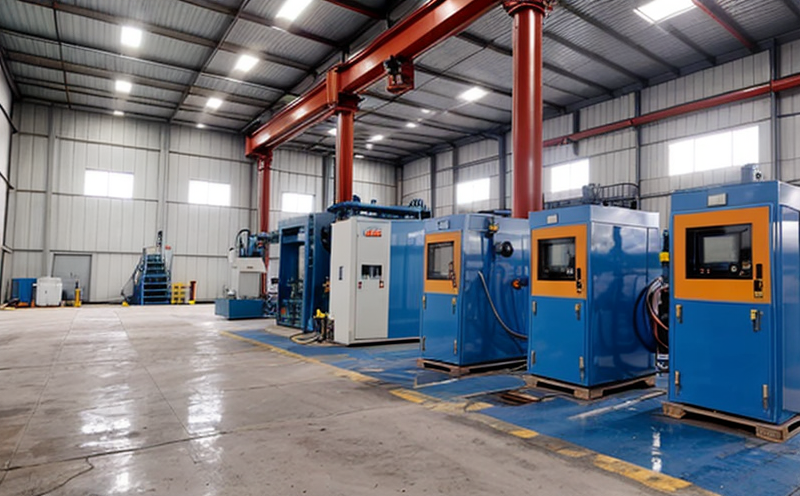ASTM D4972 pH Testing of Clay Minerals
The ASTM D4972 standard provides a comprehensive methodology for determining the pH of clay minerals, which is crucial in various industrial applications. This test is particularly important as it helps to understand the behavior and reactivity of clays under different environmental conditions. The pH value can influence the mineral's ability to interact with other materials, making accurate measurement critical.
The testing process involves several steps that are detailed by ASTM D4972. Initially, a sample of clay is prepared according to specified standards, ensuring homogeneity and consistency across multiple samples. The preparation method includes drying and grinding the clay to an appropriate particle size, typically less than 0.5 mm.
The core of this test involves measuring the pH using a calibrated glass electrode or a pH meter designed for precise measurements in aqueous solutions. It is important that the sample be dispersed adequately in water before measurement to ensure accurate results. The dispersion process can vary based on the clay type, but it generally includes stirring and sonication.
The measured pH value of the clay suspension provides critical information about its reactivity with other materials. For instance, in construction applications, understanding the pH is essential for predicting how well the clay will bond with cement or other additives. In chemical processing industries, it helps to determine compatibility with various chemicals used during production processes.
Clay minerals are widely used in numerous industrial sectors including ceramics, paper manufacturing, and oil drilling muds. Each sector has unique requirements for the pH of clays; for example, higher pH values may be preferred in some chemical processing applications to enhance reactivity. Therefore, accurate pH testing is vital not only for quality control but also for optimizing production processes.
ASTM D4972 specifies that tests should be conducted at room temperature and that multiple readings are taken from different parts of the suspension to ensure consistency. These results are then averaged to provide a representative value for the entire sample. This ensures reliability and accuracy, which is especially important given the variability in clay mineral properties.
Understanding the pH of clays also aids in environmental considerations. For instance, in mining operations where tailings ponds are involved, knowing the pH can help manage the chemical stability and prevent environmental contamination. In agricultural applications, understanding the pH helps to optimize soil conditions for better crop yields.
The significance of ASTM D4972 lies not only in its role in quality assurance but also in fostering innovation within industries reliant on clay minerals. By providing a standardized method, it encourages consistent results across different laboratories and manufacturers, which is essential for global trade and regulatory compliance.
Applied Standards
- ASTM D4972-18: Standard Test Method for pH of Clay Minerals Suspensions in Water
- ISO 12053-1:2006(E): Soil quality - Determination of pH (buffered) using glass electrodes
The ASTM D4972 standard is widely recognized and applied across various industries. It ensures consistency in testing methodologies, which is crucial for maintaining high standards of product quality and environmental safety.
Eurolab Advantages
At Eurolab, we pride ourselves on offering unparalleled expertise in ASTM D4972 pH testing of clay minerals. Our team consists of highly skilled chemists and technicians who are thoroughly trained to adhere strictly to the ASTM standards.
- Expertise and Experience: With years of experience, our laboratory ensures precision and accuracy in every test.
- State-of-the-Art Equipment: We utilize advanced instrumentation that guarantees reliable and repeatable results.
- Comprehensive Reporting: Our reports are detailed and include all necessary data for your records, ensuring full transparency.
- Quick Turnaround Times: We understand the importance of timely delivery and strive to complete tests within industry-standard deadlines.
Our commitment to excellence in testing ensures that you receive accurate results every time. This is vital for maintaining your reputation as a leader in your field and ensuring compliance with international standards.
Environmental and Sustainability Contributions
- Pollution Prevention: By accurately testing the pH of clay minerals, we help prevent potential environmental pollution by ensuring that industrial processes are optimized to avoid harmful emissions.
- Resource Efficiency: Understanding the pH of clays aids in resource-efficient use, reducing waste and conserving valuable resources.
- Better Product Performance: Accurate testing ensures products perform optimally, leading to less waste and more efficient use of raw materials.
These contributions are part of our broader commitment to sustainability in all our operations. By adhering strictly to ASTM standards like D4972, we play a crucial role in promoting sustainable practices within the industries we serve.





